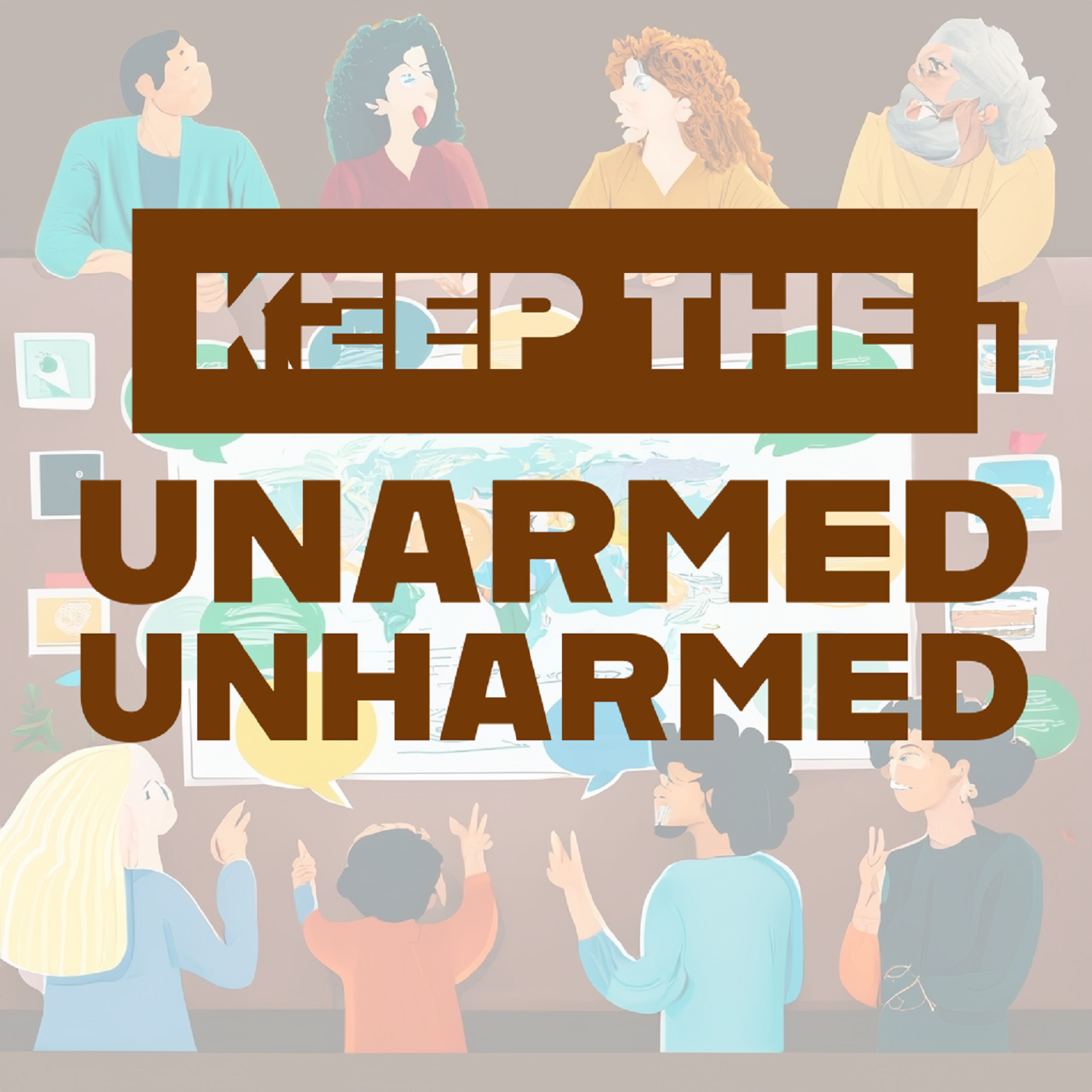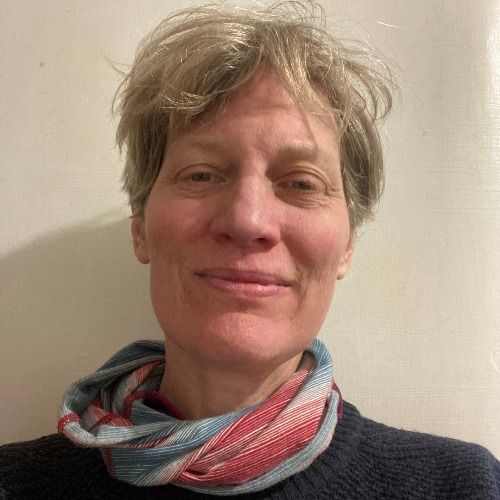Episode 4
From Political Science to Protecting Civilians
In this fascinating interview, Tiff Tool shares her journey into unarmed civilian protection and what she learned from her experiences in South Sudan and Indonesia. She highlights the power of building relationships across cultures and over time to resolve conflicts nonviolently. Tiff stresses that while slow, UCP can achieve lasting peace between communities, even amidst civil war. Her stories of trust-building, accompaniment, and reconciliation reveal why she remains committed to this work.
✍️ Episode References
Peace Brigades International
https://www.peacebrigades.org/
Nonviolent Peaceforce
https://www.nonviolentpeaceforce.org/
UNHCR
https://www.unhcr.org/Episode summary created by https://headliner.app
Transcript
Welcome to the Peace Wanted podcast. Hello. How are you this morning
Speaker A: Welcome to the Peace Wanted podcast.
Speaker B: Hi.
Speaker A: Hello.
Speaker B: How are you?
Speaker A: I'm very well. How are you this morning?
Speaker B: Good. So I hope the sound isn't bad.
Speaker A: It's absolutely fine. It's lovely. Thank you very much.
Rachel Tool has worked in unarmed civilian protection in South Sudan
Speaker A: So today I'm in conversation with the amazing, TIFF Tool, who's a fabulous woman. And I know from working across you're working across Nonviolence, you work on environment, you work on unarmed civilian protection, and it's bringing those together. I know that you have worked in unarmed civilian protection in South Sudan. Love it if you could tell us a bit more about it, how you came to be in that world, because it's just so interesting. So thank you very much for coming and joining. How did you get into all of this? Why did you go to South Sudan?
Speaker B: well, thank you for having me, Rachel. Maybe just to give a little bit of my background is I had done my degree in political science and then a master's in Public affairs. And when I was doing that, I really started to focus on nonprofit work. So I didn't really focus on human rights and UCP at the time, but I was really more interested in seeing how different types of organizations engage, and different types of work. That's when I really started to research a little bit more. And I found peace Brigades international. And so PBI has been around since the 19, eighty s, and they focus on something very well now. I would call it UCP work. At the time, the terminology wasn't there, but that's what they did. It's a lot of human rights, a lot of accompaniment, working with human rights defenders and journalists. So I went and joined PBI in Indonesia. And, in that experience, I really started to do a lot of the typical UCP on the ground work and really started to learn how to engage with different types of groups. Working with police and military, working with human rights defenders, community groups, local leaders. Following my work with them, I studied nonviolence specifically with the, German government. They have a program, for civilians there.
Speaker A: While you were in Indonesia, you managed to study the nonviolence of the German government. That's amazing.
Speaker B: Well, I actually did it after.
Speaker A: Right.
Speaker B: I went to Germany for about three months with the program, and there was many different organizations from all across the globe doing different types of work. So it's human rights work or peace building, peacekeeping. A lot of the traditional UCP that you see, nonviolent Peace Force is one of the organizations that came and gave a presentation. And I met the executive director at the time, Tim, and really started to follow their work. And that's when I joined Nonviolent Peace Force in South Sudan. And I joined in a really special time because it was right before the referendum.
Speaker A: So what time are we talking about now?
Speaker B::Speaker A: 2011. You went to South Sudan. So before they became independent?
Speaker B: Yes.
Speaker A: Wow.
Speaker B: At the time, it was Sudan. Yeah. Nonviolent Peace Force had recently set up new program there to do monitoring. Prior to the referendum, I joined first team there in Moondri, which was in the Western Equatorial State. And there's a lot of things that I did in South Sudan. And over the course of a few years, I stayed within the Moondri office as well as in our Yida office in their Yida refugee camp.
Speaker A: So did you actually live with people in these places? Like, did you have your own house?
Speaker B: So every place was very different. So in Moondri we had a house and it was in the community and there were very few internationals because it was quite a remote location. It was just working in the community. And we also had a small office there and we worked with a lot, there was a lot of traveling there. So maybe just to focus a little bit on my work in Moondri, not specific to the referendum, but just working in the community. It was an amazing experience, and I made a lot of lot of dear friends that I still hold, but it was just amazing to be in, somewhere that was very different from my cultural background and understanding. I think that I learned a lot and I hope that I was able to share a lot. And the reason why I think that UCP works so well is because one of the maintenance is that we are nonpartisan and so it's very hard to be nonpartisan when you are from a community because you might be labeled as partisan. One of the things is that NP is a very big mixture of international and national staff. And when we have national staff, we have national staff from many different communities. Not only one community, so that you have people speaking different languages coming also from very different backgrounds and cultures, and we're all a team.
Speaker A: What makes it work across so many different cultural, not just the culture of the country, but the culture of all the different people?
Speaker B: I think that in general, once you get to know somebody, anybody, you learn a lot and you can share a lot. And I think that when you're coming from a place that might be very remote, you might not necessarily have as much communication or relationships with other communities. But as soon as everyone came together, as soon as we hired people, and we hired them based on their different experiences, their different languages, we didn't necessarily hire anybody based off of their experience in peace building or human rights. It was more just hiring people in the communities who were interested and wanted, to do this type of work. Everyone obviously automatically just become close.
The nonviolent peace force hires national staff, whereas PBI is only international
Speaker A: It sounds like it had a huge impact on you being there and, maybe being in Indonesia as well. Is that the same has it changed your life doing this work?
Speaker B: Absolutely has. In Indonesia with PBI, we had to learn the language and pass a series of tests because you're meeting with a lot of people, especially government officials, who do not speak anything but Bahasa, Indonesia. So that was a big barrier that I was able to work past learning another language and then really being able to immerse myself. I think I more immersed myself. When I was in South Sudan, even though I wasn't required to learn a language, I did learn a lot, because a lot of our staff, especially the caretakers and the people just all around us, didn't speak English. I would say the biggest difference is that nonviolent peace force hires national staff, whereas PBI is only international. So whenever you're working with national staff on the same level as each other, you're equals. You develop a much closer relationship, as opposed to working with human rights defenders, but you're not working with them in the same office all day long on all sorts of things. You're working on building trainings together, or doing basic finance together. And so there's just a lot of different aspects when you're working with the.
Speaker A: People, you just have to do everything together.
Do you think about how the protection work that civilians do and environmental concerns
Speaker A: So I know that you work with lots of different organizations. Do you think about how the protection work that civilians do and the environmental concerns and the way we go about achieving peace? Do you think about how they fit together?
Speaker B: Well, one thing is I've noticed over the past decade is that terminology is constantly evolving, and the way we look at our work is constantly evolving. And I think that all of these different pieces when it comes to environmental work, if we're talking about just food security, we're talking about, physical security, we're talking about aid. Yeah, they're all starting to kind of link together in many different ways, I've noticed. It's more mainstream. All of the work is becoming more mainstream together. Many years later, I work with UNHCR, which champions themselves to be called the Protection Agency. And the main tenets of the work of NP is unarmed civilian protection. And of course, everyone in the UN. Aside from the blue and black helmets, are civilians for the most part, and unarmed. And so they've taken this, I think, from what all of the work, many people have been doing for decades, and started to take it forward as well. And so it's definitely looking different.
Speaker A: Do you ever think about what this is going to look like? Do you ever think about how it's changed or what comes next for them or anything like that in how to build that protective ability, really? Not just from the outside, but from the inside?
one memory that I have, from:Speaker A: And building strong relationships in action. So if you had to describe or tell somebody one thing about how unarmed, civilians protect one another, what would you want to tell them?
Speaker B: One of the biggest things that I've learned from UCP is that it's really a slow process. There is a lot of time and effort and commitment that is needed. it's not a quick fit in order for it to be successful. It does take time, but it is extremely successful. Over time. When you look at different examples or case studies, you can see their success over any type of war that's ever happened. And I think that it starts definitely with individuals. There are always people who would like to see their children and the future of their communities to flourish. And they will lead it. All they need is maybe support to do that, but always local communities will lead it on their own.
Speaker A: I love that. And I've also heard that so many times, the motivation for people doing this is because they want their families to have a better time than they had, because they've all been living through war and violence for so long. So that idea that it works is so important to tell people, isn't it? Thank you very much for sharing all your stories and ideas. It's really super long. May the success carry on.
Speaker B: Thank you.
Speaker A: Thank you for joining us. Come back soon.

